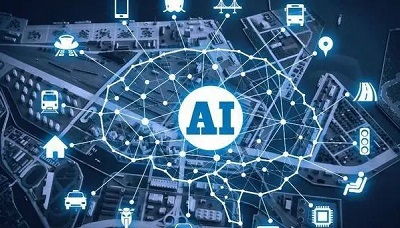In today's digital world, artificial intelligence and cloud computing affect the work and lives of many people every day.
Cloud computing helps businesses become more agile and flexible, and provides cost efficiencies. With help of artificial intelligence technology, it helps to generate insights from data and provide a superior customer experience. As a result, collaborative AI and cloud solutions will bring businesses closer to their end customers and improve their operational efficiency.

What are cloud computing and artificial intelligence?
Cloud computing is a form of distributed computing, which refers to a networked 'cloud' that breaks down huge computational processes of data into a myriad of smaller processes, which are then processed and analysed by a system of multiple servers to produce results that are returned to the user. Cloud computing is based on a pay-as-you-go pricing principle. In simple terms, cloud computing can be defined as the on-demand delivery of IT resources. The technology helps businesses access technology services such as computing power, storage and databases on an as-needed basis. This helps reduce the unnecessary costs of buying, owning and maintaining physical data centres and servers.
Artificial Intelligence is a new technical science that studies and develops theories, methods, technologies and application systems for simulating, extending and extending human intelligence. Artificial intelligence is a very broad science that consists of different fields such as machine learning, computer vision, etc. In general, one of the main goals of artificial intelligence research is to enable machines to perform complex tasks that normally require human intelligence.
So, what role can AI play in cloud computing?How can AI improve cloud computing?
1. Lower costs
One of the major advantages of cloud computing is the elimination of costs associated with data centres, such as hardware and maintenance. For AI projects, these upfront costs can be prohibitive, but in the cloud, companies can pay a monthly fee and have immediate access to these tools, making the costs associated with research and development more manageable. In addition, AI tools can derive insights from data and analyse it without the need for human intervention.
2. Intelligent automation
Businesses harness the power of AI-powered cloud computing to improve efficiency, strategy and insight. Artificial intelligence can automate complex and repetitive tasks to increase productivity and also perform data analysis without any human intervention. it is also possible for IT teams to use AI technology to manage and monitor core workflows. it is possible for IT teams to focus more on strategic operations, while AI performs common tasks.

3. Deeper insights
Artificial intelligence can identify patterns and trends in huge data sets. It uses historical data and compares it with the latest data to provide IT teams with well-informed, data-backed intelligence. In addition, AI tools can perform data analysis quickly so that businesses can resolve customer queries and issues quickly and efficiently. Observations and valuable recommendations gained from AI capabilities lead to faster, more accurate results.
4. Improved data management
Artificial intelligence plays an important role in data processing, management and structuring. Artificial intelligence can significantly contribute to marketing, customer service and supply chain data management through more reliable real-time data. Artificial intelligence tools simplify the uptake, modification and management of data.
5. Increased security
As enterprises deploy more and more applications on the cloud, intelligent data security is key to keeping data safe. IT teams can use AI-powered cybersecurity tools to track and assess network traffic. Artificial intelligence systems can signal when anomalies are detected. This proactive approach helps prevent any damage to critical data.
6. Increase productivity
Businesses in the areas of customer service, personalisation and security benefit from artificial intelligence and SaaS (Software as a Service). This combination helps companies to deliver more functionality and value to their customers. The integration of Artificial Intelligence and SaaS enables businesses to track consumer behaviour and needs in order to provide better service. Using a SaaS model not only makes it easier to host data and complex software requirements but putting the entire data in the cloud makes it easier for businesses to access and use on demand.
You May Also Like:A brief deion of the application of artificial intelligence in payments











